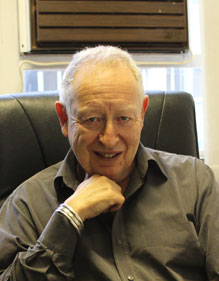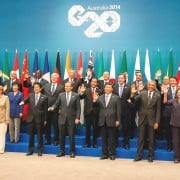|
Getting your Trinity Audio player ready...
|
 Corruption Watch executive director David Lewis chatted to Moneyweb’s Siki Mgabadeli in the wake of the news that the G20 has adopted strict new principles to tackle money laundering and undisclosed beneficial ownership.
Corruption Watch executive director David Lewis chatted to Moneyweb’s Siki Mgabadeli in the wake of the news that the G20 has adopted strict new principles to tackle money laundering and undisclosed beneficial ownership.
Download this interview as an MP3
Siki Mgabadeli: G20 leaders over the weekend vowed to implement an anti-corruption action plan as part of a drive against the use of shell companies and trusts to engage in tax evasion and money laundering. It's said that at least a trillion dollars is siphoned from developing countries every year as a result of tax evasion, money laundering, bribery and other forms of financial crime. Much of this money flows through anonymous companies registered in G20 countries.
David Lewis is with Corruption Watch and joins us now. David, thanks for your time this evening. What did you make of this step by the G20? Is it in the right direction?
David Lewis: Yeah, it's definitely in the right direction. In fact, we've been part of a global lobby precisely to get this onto the G20 agenda, which if you like was the first step in the process. And now it has got onto the agenda, and the G20 have accepted it, which we are really pleased about. It's quite a major step forward – if it is implemented, of course.
SM: Let’s talk about this. A trillion dollars a year siphoned from developing countries, and we are talking about all sorts of complicated financial instruments that people use. What are we dealing with here?
DL: I'm not sure if it's a trillion dollars from developing countries – I think it's a trillion dollars in total. But the figure from Africa alone is about $50-billion a year. So we are talking about money that has been earned either from corruption or from criminal activities like drug dealing, or from the proceeds of tax evasion. But obviously in order to launder money from criminal activities or tax evasion you have to corrupt the system as well. So it's all corruption-connected.
And this is money that should rightly be taxed in the country in which it is earned, or it's money that is criminal, that is earned from criminal conduct like corruption or drug-dealing or human trafficking. And this new step – as I say, if implemented – will make it immeasurably more difficult for corrupt people to hide the proceeds of corruption, which is a point at which they are vulnerable to detection, but have largely been able to escape it to date because of these structures that they have put them in.
SM: So what is then proposed in the plan?
DL: What is proposed is that all governments regulate or legislate for the establishment of a public registry on which the beneficial owners of trusts and company structures be revealed. That’s the core recommendation. There are other recommendations which we and fellow chapters in Transparency International and others are lobbying for, like for example when people launder money by buying expensive assets for cash – wine farms, Lamborghinis, expensive jewellery, which obviously is another favoured way of laundering money. So we are proposing that as well. I don’t think that the G20 has done that, and I'm not sure that they were asked to, but those are two very common ways of cleaning dirty money and we are going to be lobbying for that in South Africa as well to be put onto the statute books or the regulatory books.
SM: Often following the money trail with these types of cross-border transactions could be quite difficult. Do we have the level of sophistication that would be needed to do this?
DL: Well, it's extraordinarily difficult, and in large part it's made difficult precisely by the measure which the G20 have committed themselves to work against, basically, by hiding the identity of that. But sure, it's difficult under any circumstances. Look, South Africa has a sophisticated financial system and it has the regulatory regime appropriate to that system. So yes, it's difficult, but it's certainly not impossible.
But I repeat, it's been made well-nigh impossible by the use of secrecy jurisdictions and by the use of these kind of measures to disguise who the parties who are who benefit from these [actions].
• This article was first published on Moneyweb.








